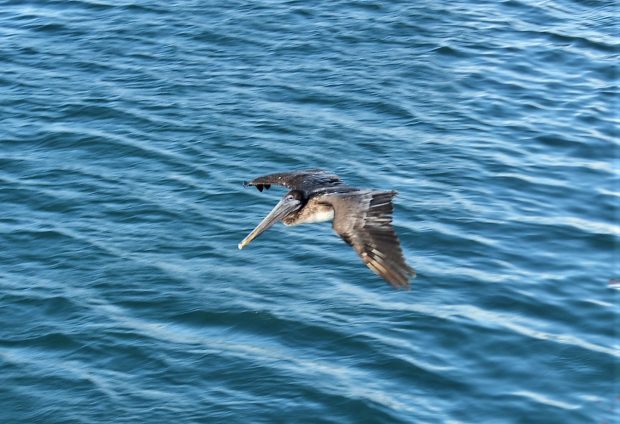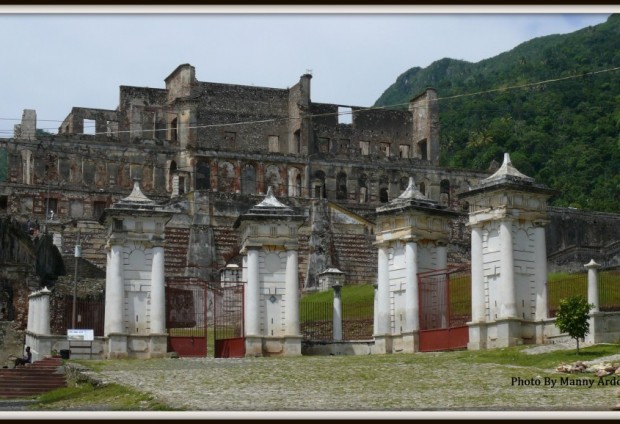-Political Acrobatics, Haitian Style-
© Max Zamor
maxzamor@comcast.net
A few months ago, I watched a short video documentary on youtube.com describing two investment successes in Haiti: The Oasis complex in “Petion-Ville” and the building of a thirty megawatts electrical power plant outside of “Cité Soleil”. While I applaud these two projects, I cannot help but admire the vision of the two young Haitians who took the initiative to start these projects at a time when Haiti needed them the most. Jean Tardieu of the project Oasis, and Gerard Daniel Rouzier of E-Power, won my appraisal for their efforts and courage in bringing these privately financed projects to fruition.
A few weeks after watching the video, I was talking with a friend who had just returned from Haiti. We were reflecting on the conditions he observed in Port-au-Prince and its surroundings while he was there. He spent only one weekend in Haiti to attend a meeting in “Arcahaie”. He explained to me that two days navigating among the devastation, were enough to make a profound impression on him. My friend was quite agitated and visibly upset at what he saw. This was his first trip to Haiti since the earthquake. He admitted that the images shown on television, the internet and print media do not reflect adequately the destruction that took place on that infamous day of January 12th 2010. He didn’t bring back with him any pictures or videos. He confided: Except for news organizations, there is no glory in pointing a camera at piles of rubble and human destitution to show to the world. Yet, many people see Haiti’s misfortunes as a tourist attraction; thus a successful business trip, or a few days of enjoyable vacations, often result in pictures of the damage being displayed on their social networking sites or proudly ornate their resume.
Among all the devastation, there is a lot of beauty in Haiti that remains to be exhibited. A better management of the land and its resources could have prevented such massive carnage. This is not meant to place blame; after all, the earthquake was a natural disaster that no one could have averted. Hopefully the predicted construction boom that will occur in the next few years, will take into consideration Haiti’s vulnerability to catastrophes like these, so as to mitigate any disastrous consequences. It is neither foolish to expect that the managers of development projects that were underway before the earthquake, like the Oasis and E-Power, will make the necessary corrections to the design of their buildings so as to make them more resistant to crumbling in the event another earthquake was to hit Haiti, hence, safeguarding many lives. According to the experts, it is only a matter of time before another big one hits.
Although prior to his trip, I did not say anything to my friend about the video, but during his account, he was excited to narrate how he drove by an electrical power plant that was being built outside of “Cité Soleil”. That’s when I told him about the video documentary and confirmed the power plant was the same as the one he was talking about. Then we quickly drifted into a self-indulging political analysis about the building of this power plant. As Haïtians, we eat political opinions as if it was “gryo” (deep fried pork). Our conversations always progress into politics whenever anything about Haiti is the subject matter. My friend and I speculated that the power plant was being built solely for the benefit of the garment industry sweatshops littering the outskirts of northern Port-au-Prince. Some of the wattage generated will probably trickle down to the masses of “Cité Soleil”, but not enough to make a significant dent to alleviate their needs. Any increase to their electrical ration would only demonstrate fleeting progress in light of their enormous energy requirements, and will only serve to appease a populace already simmering in suspicion.
My friend recalled a brief conversation he had with some colleagues in Port-au-Prince, and then repeated later on with a few residents in “Arcahaie”. Both conversations had one thing in common: Rightly or wrongly, both groups were of the opinion that the power plant was a project partly owned by Bill Clinton, the former president of the United States. They all felt that Mr. Clinton is setting himself up to make a lot of money from the development projects planned for Haiti. One can say with certainty that, the Hope Legislation passed in the United States Congress to jump start textile manufacturing jobs in Haiti, can be a windfall to those who have vision and the political assets to take full advantage of its benefits. One can also argue that Bill Clinton has all of those at his disposal.
It is no secret that there is a deficit of electrical power in Haiti. Who would profit from such projects? Anyone who builds an electrical power plant, especially if it is privately financed and well managed, deserves to reap the financial benefits. I advance that the people of Haiti, who have sacrificed so much, should also benefit. Therefore, it makes sense to my friend and me that it is good for the country. During our conversation, we also speculated about other subjects concerning Haiti: Tent cities, education, urban development and the recent elections were on our plate. We took care of not being too cerebral about our discussions. Besides, we were far removed from Haiti’s political acrobatics, that a little speculation was nothing more than a mild exercise in intellectual sport; a paradox to enjoy and take very seriously.
Then came the final election results: Former singer/musician Michel Joseph Martelly was elected President, and cautious optimism fell upon Port-au-Prince like a puff of ominous cloud. No one knows for sure if it will make way for sunshine or bring with it a political storm unlike anything Haiti has ever seen before. Martelly’s fiery brand of oratory delivery, and his “bad boy” reputation from his performing days, appealed to a population tired of the same old inefficient governance that kept Haiti mired in poverty for so long. Haiti didn’t need a “nice guy” at the helm, and Michel Martelly was trumpeting the right words at a time when the country needed it the most.
Four days after he was declared the winner of the elections, Mr. Martelly met in private with Bill Clinton. The subject of their discussions was never revealed. Then ten days later, he went to Washington to meet with the Presidents of the World Bank, the International Monetary Fund and the International Development Bank, in other words, those who hold the purse strings in Haiti. And yes, he also met with Hillary Clinton.
A few days before he left for Washington, Michel Martelly was busy denying reports about an existing list of various names for possible Prime Ministers. In an interview granted to the Creole program of « Voice of America » he would declare: «…Tout ce que vous entendez dans la rue, que vous lisez, ne sont que des spéculations, des rumeurs.» (…Everything you hear on the street, what you read, are only speculations, rumors) Among the names mentioned was that of Daniel Supplice, his political advisor. Still speculating, I told my friend that Michel Martelly went to Washington to get instructions regarding his choice for Prime Minister and what to do for Haiti, according to the preferences of the international community. Of course we know it’s a community that always has the best interest of Haiti at heart. Those instructions will surely and personally benefit someone in power. Taking my cue from the residents of “Arcahaie”, I again speculated half jokingly that it could be the Clintons. The rampant belief among Haitians is that their leaders have a history of selling out the country to Washington, Ottowa and Paris for personal gains. Why would Michel Martelly be any different? A quick private meeting with Bill Clinton and another meeting with Mrs. Clinton a few days later did not do much to lower the eyebrows.
Marc Bazin was the international finance technician, otherwise known as the darling of Washington. Jean Bertrand Aristide was his own man: He irked the “grandons” (the rich and powerful) of Washington and was even deemed belligerent. Well, we know what happened to him. René Préval also irked Washington by his aloofness. “Ti René”, as he is affectionately called, was “malen” (sneaky): His political calculations always left him a way out. He can’t always be blamed and he never totally takes credit. So Washington neither loved nor disliked him. As for Michel Martelly, he deserves the benefit of the doubt because he has not even achieved the much important benchmark of one hundred days in power. That didn’t stop the international press from anointing him as being “Washington friendly”. Knowing that in the past, the so called “friends of Haiti” have shown little interest in achieving parity when negotiating Haïti’s benefits, the question to ask is: What kind of friend will Michel Martelly be for Haiti?
As soon as Michel Martelly’s airplane touched down in Port-au-Prince from his self-proclaimed successful trip to Washington, the rumors increased to a feverish pitch, ruminating that his Prime Minister has already been chosen. The only name this time on everyone’s lips was Daniel Gerard Rouzier. The rumors proved to be true when that choice was confirmed a few days later by the Senate’s president. Was there a relationship between Martelly’s early meeting with Bill Clinton, his trip to Washington, his overwhelming welcome at the State Department and the choice of Mr. Rouzier, the successful E-Power developer, as Prime Minister?
Perhaps the residents of “Arcahaie” know something the rest of the world doesn’t.



No comments yet.